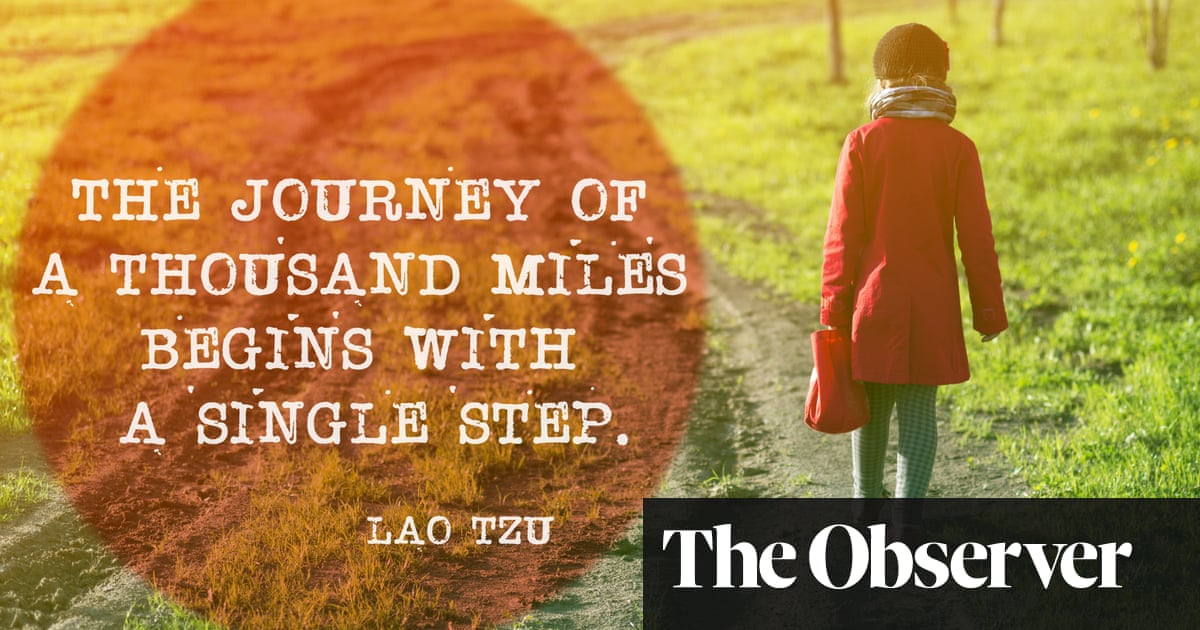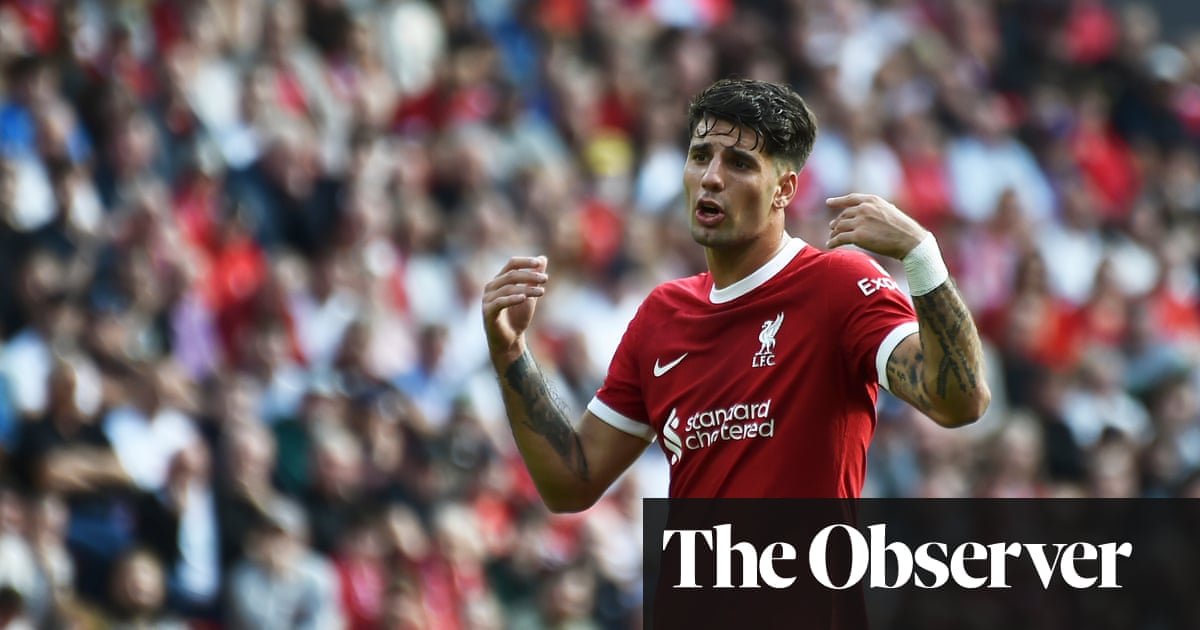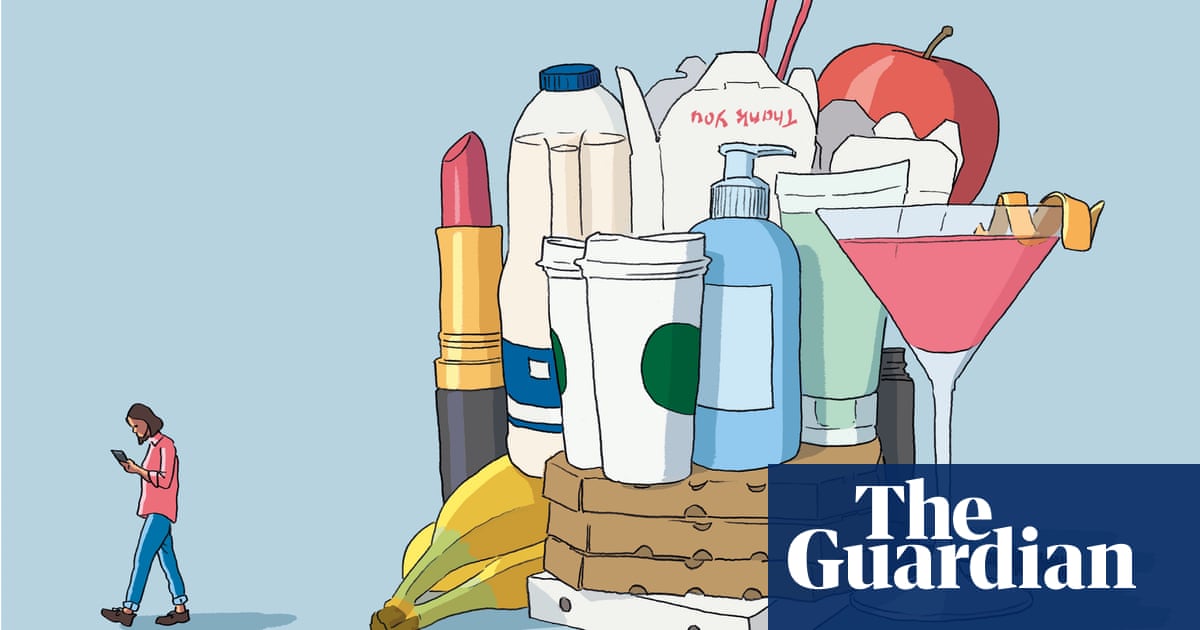
Hanya Yanagihara’s debut novel taught her not to give up her day job as a travel writer and editor. The People in the Trees was the story of a scientist jailed for sexually abusing children he adopted during his Nobel-winning research on a Pacific island. It impressed reviewers with its exhaustive inventiveness and its refusal to offer redemption or solace, but sold only a few thousand copies when it was published in 2013.
Two years later, the Manhattan-based writer released a novel that was twice as long and even less forgiving. It was about the fallout, among four college friends, from the appalling childhood sexual abuse of one of their group, and it hit the jackpot, becoming one of those vanishingly rare literary break-outs. Victoria Beckham and Dua Lipa declared themselves fans, while an equally passionate group of readers condemned it as gratuitous, even “evil”. A Little Life sold a quarter of a million print copies in the UK alone, where it was shortlisted for the Booker and the Women’s prize for fiction. But far from giving up her day job, Yanagihara took on a bigger one, as editor-in-chief of T, the New York Times style magazine.
When we meet up, at an upmarket London hotel in October, she is combining a whistlestop publicity trip for her third novel, To Paradise, with two weeks of European fashion shows that have left her with “a mysterious illness” which, she hastens to add, is definitely not Covid. The jaunt is a twice-yearly ritual: menswear and furniture shows the spring and summer, then women’s ready-to-wear in the autumn. “I do New York, Milan and Paris, and I always end up getting sick. Usually it’s a cold or flu, so this is a new one for me,” she says, brandishing hands flushed with tiny red spots.
She is determined not to let her mystery ailment get in the way of a promotional campaign that began six months earlier when news of To Paradise was teased to the book trade. “Do you remember where you were when you finished A Little Life? And where were you when you heard that Hanya Yanagihara’s new novel arrives next year? Right here,” tweeted Waterstones at the time – an enthusiasm rewarded by Yanagihara in proof copies of To Paradise, with a personal note of thanks to all the booksellers who had pressed her work into readers’ hands.
Like its predecessor, To Paradise is a brick of a book that checks in at well over 700 pages and is set largely in New York. But there the similarity ends. This is a very different city, which is seen in three different iterations in a trio of time zones. There’s perhaps another motive behind Yanagihara’s note to the booksellers: until you get the hang of it, which takes the length of an ordinary-sized novel, it’s all a bit disorientating, not least because – for reasons to do with its preoccupation with inherited privilege – the protagonists in all three timezones are all named David, Edward and Charles/Charlie Bingham.
It is, however, most definitely worth hanging on in. “It’s a mature masterpiece, which makes A Little Life look overcaffeinated,” says veteran novelist Edmund White, who emerged as an early champion with a Facebook post that To Paradise was “as good as War and Peace”.
In the first section we’re in 1893, at the heart of fin-de-siècle society with clear Jamesian resonances (it centres on a big family house in Washington Square), except that this New York is a breakaway republic where same-sex marriage is the norm. “I’d always wanted to write a marriage story, but marriage stories are about money, and I wondered, if you wrote one that wasn’t about gender norms, and gender rules, what would that marriage story be? And beyond that, what would that history be?” says Yanagihara.
In the second section we move to 1993, where an unnamed plague is laying waste to the complacency of the next generation of Davids, Charleses and Edwards. In the third section we’re in a dystopian 2093 where the personal and social freedoms of David, Charles and his granddaughter Charlie have been sacrificed to the demands of controlling wave upon wave of pandemics. It’s all scarily plausible: a “what if?” novel combined with a “what when?” one, I suggest. “And what is,” says Yanagihara.
What it is not, though, is a response to Covid. She had the idea of the novel in 2016 and started researching it in earnest shortly after the election of Donald Trump, at a point when “history suddenly started to move very quickly, raising questions about whether we were who we had always thought we were”. She can’t explain why she started interviewing scientists about the probability and likely consequences of the next pandemic. “But I can say that it didn’t arise from any special oracular powers,” she wrote in her note to booksellers. By the time New York was locked down, the novel’s structure, characters and themes were in place, the first part was finished and the other two were partly written.
“Of course, it would occasionally strike me as strange that I was writing about this pandemic in the midst of one, but not terribly,” she says. “And listen, there’s no way to say this without sounding completely heartless, but Covid really gave me a lot of time. It was not an anxious period for me, because I was extremely lucky to have a job that I knew was secure. I had health insurance, I had savings. I had a place to live that was safe. And suddenly, as someone who needs eight or nine hours’ sleep a night, I had time.”
After the taxonomical precision of The People in the Trees, where scientific identification and naming is central, and the introversion of A Little Life – in which external history is airbrushed out, leaving no distraction from the agonies and ecstasies of Jude, JB, Willem and Malcolm, over three decades – the bleaching out of identity associated with names in To Paradise is particularly striking.
One of the Davids is actually a descendant of Hawaiian royalty, the reluctant centre of a running argument about sovereignty and the appropriation of people and objects. Nor is this anonymity limited to the novel’s characters: in the world of the 19th-century Binghams, there is no word for “gay”, while the diseases that sweep through the later sections are never named. It’s a bold formal move for a writer whose breakout readership is likely to be expecting another agonised circle of friends.
For Yanagihara this play with naming represents one of many negotiations with America’s idea of itself. “We’re often renaming things in the United States, either to eradicate a bad memory or to try to dissociate it from a person who history has not treated kindly or who deserves to be treated with more respect. There’s this idea that naming something changes the fundamental nature of it, but does naming who we are make us more real to others? Or is it simply a way of making ourselves more real to ourselves?
Above all, To Paradise offers a profound challenge to the idea of democratic society. The very concept of paradise, she says, is that it is not for everyone but for the chosen few. “The idea of sacrifice for a kind of freedom, the idea of personal freedom, as opposed to social freedom, the idea of a freedom for some, but not for all – these are questions that are integral to the founding, and continuation, of America.”
The current disarray around management of wave after wave of Covid pandemic bears out her point, giving the novel a shadow that seems to have warped and elongated even in the two months since I first read it. This is particularly true of its chilling representation of a young woman whose independence, and capacity to make adult relationships, have been sacrificed by her doctor grandfather to the task of keeping her alive.
Did Yanagihara have any qualms about being seen as playing to the anti-vax gallery? “I didn’t think about it that way,” she says firmly. “My father’s an oncologist. He doesn’t treat children, but there are certain forms of treatment, as I understand it, that save children while really hurting them and causing long-term complications: I was thinking about the sacrifice that Grandfather, and unwittingly Charlie, end up making for her life. He has a much colder and more clinical idea of meaningful life until she gets sick.”
For all this book’s differences from Yanagihara’s previous novels, all three have one striking thing in common: they barely touch on the consciousness of women. Rendered infertile and perpetually childlike by the antidote to the virus, Charlie has little agency. Why such an absence? “You know,” says Yanagihara, “after you’ve written your third book, certain patterns and motifs begin to announce themselves that you’re not conscious of. Sometimes they have to do with your biography, but sometimes they don’t. I don’t know why there’s a grandparent in each one of these books, because I wasn’t close to my grandparents. There are no mothers in any of my books, and I’m not sure why, because I have a perfectly fine relationship with my mother. There are very few women and again I’m not really sure why, but there’s always disease and the body falling apart. The short answer is I’m not sure why Charlie is the only woman.”
If one were to go down the psychoanalytical route, one could cite the many interviews in which she has spoken extensively of the influence of her father, who – when she displayed an interest in art at the age of 10 – took her to a pathologist’s lab so that she could draw a cadaver. “I was always interested in the disease, not the human,” she told one interviewer.
“I always say that my father came from the last generation of quasi-intellectual men who were completely open and saying that they expected one thing from their daughter, and another thing from their wife,” she says now. “I didn’t want to be a wife and a mother, and was probably very dismissive of the lessons my mother had to teach me, which I regret. And so I deliberately never learned how to do certain things like cook or clean. And as a teenager everything seems like such a binary: you would either be at home cooking and cleaning, or you would be out doing what you wanted, and I wanted to be out doing what I wanted.”
Yanagihara was born in Los Angeles, one of two children, to a family that had lived in Hawaii for three generations but were not of Hawaiian blood. Her childhood was itinerant, following her father’s jobs across the US, though she spent three high-school years at the private school in Honolulu that Barack Obama had attended a decade earlier. Punahou School was founded on land given to an American missionary called Bingham, whose grandson, an explorer turned US senator, is listed among its famous alumni (all the surnames in the novel, it turns out, are from prominent 19th-century missionary families in Hawaii).
Does she feel American? “Yes, 100%,” she says, though she has Japanese ancestry and considers Japan to be “the country of my heart”. Travelling abroad, she admits, disarmingly, “is a process of constant humiliation. I feel very gauche most of the time. This ugly American behaviour which I can see in myself is kind of what people expect. Especially if you are a non-white American, you will never feel more American than that when you go back to the country of your ancestry, as I do to Japan.”
In Hawaii, she grew up at the height of the sovereignty movement with parents who were “classic liberal boomers” and favoured the less radical state-within-a-state solution. In the second section of To Paradise, a range of hopelessly naive separatist movements lay claim to the islands. “I hope the book offers no moral judgment about a craving to return to this era in which things seemed simpler and more noble and respectful. It only says something about how hard it is to try to go back, when history is always in the way,” she says. The Bingham house is stuffed with Hawaii artefacts, which become part of a larger conversation about the ethics of protectiveness: or, as she puts it, “who gets to decide what’s best for people and for cultures”.
There’s an unflinchingness in Yanagihara’s writing that can seem gratuitously punishing – a reminder of the little girl who was more interested in disease than people. By the third section of To Paradise, Hawaii has been destroyed. In A Little Life, she pushed the torture and self-flagellation of lawyer Jude so far that some readers recoiled while others hung on in horrified fascination. “This book and its champions seem bound to each other by their mutual disgust and discomfort,” wrote Daniel Mendelsohn in the New York Review. “It’s rare to encounter literary discussion of such dissonant zeal, such enthralled distress,” observed the Australian critic Beejay Silcox, in an essay summarising the Little Life phenomenon.
How did Yanagihara herself feel about inspiring such strong feelings? “I don’t read anything about my books and I’m not on Twitter, which is, as I understand it, where the majority of these conversations tend to get slugged out,” she says. She is particularly impatient with the #ownvoice movement, which might question her right, as a woman, to tell the stories of gay men. “It’s very dangerous. I have the right to write about whatever I want. The only thing a reader can judge is whether I have done so well or not.”
While A Little Life was a dark adolescent fairy story of a group of friends who attempt to hold historical institutional evil at bay by making their own family, To Paradise takes a more history-hardened view of relationships. People always ultimately choose their family over friends, asserts one of the Charleses. Though Yanagihara says that she disagrees with that position, I wonder how much – as someone who is resolutely single and lives alone – her own idea of friendship has altered during the pandemic.
“I think if people did live with someone, whether it was their partner, their family, or so on, they almost always prioritised those people over their friends,” she says. Does that mean she personally lost friends? “It led to some meaningful conversations,” she replies, “…and then there were friends who I became much closer to.” She is wearing a chunky gold necklace featuring her star sign, Virgo, given to her by a friend who is the artistic director of a leading couture house.
“I don’t have family,” she says, correcting herself a beat later to: “I do, but they’re in Hawaii and they’re fine.” (She spent two Covid summers there, watching the wildlife return to tourist-bare beaches and disappear again as the industry returned.) Her point, she clarifies, is “I think people divided according to grades of fear, and who they had to protect”.
It’s hard to imagine how the 47-year-old author manages to combine such a high-profile, jet-setting job with writing such big books, but she says that being the boss has its advantages, as everything works around you. “I’m not the smartest or hardest-working or most educated person, but I am the best at time management,” she says. “It’s a skill that I’ve worked hard to develop, which is not to say that I’m disciplined. I’m not really that disciplined. But once I set aside time for myself, I know how to sit down and use it.”
And besides, she adds, journalism has made a valuable contribution to her writing: “It teaches you to be respectful of grammar and spelling, which sounds like a small thing, but really isn’t. It teaches you structure, which I think is an underrated skill. It teaches you how to turn things in on time. And it teaches you that at a certain point, you have to let it go.”
After three novels, her project is becoming clear: as Edmund White puts it, she is chronicling her country just as panoramically as Tolstoy did his, with a similar confidence that the story is interesting. “I’ve really thought about how young America is as a nation,” says Yanagihara. “Despite the frustration and despair – even in countries like France, which pretend they don’t care about it – there is such an admiration for America. It’s our vitality, our childlike qualities, you know – our optimism and generosity, but also our spoiltness, our tantrum-throwing, our inwardness, our myopia. I really do think of it as a precocious and quite bratty child, heading into adolescence: every quality that you would admire in that child and every quality that will frustrate you exists within America as well.”
The issues to which America is now applying this adolescent brattiness are undeniably global. “The arguments we’re having about vaccine mandates; the ones we’re having about the kinds of sacrifices we might make to effect greater global change and deal with the climate crisis; the ones that involve a reframing of history, especially when it comes to race and immigration. Those questions feel more urgent now because the threat is much more intense, especially when it comes to climate change and disease,” says Yanagihara. They are questions that fiction needs to address, because there are no easy answers in fact.
To Paradise is published by Pan Macmillan on 11 January (£20). To support the Guardian and Observer order your copy at guardianbookshop.com. Delivery charges may apply












